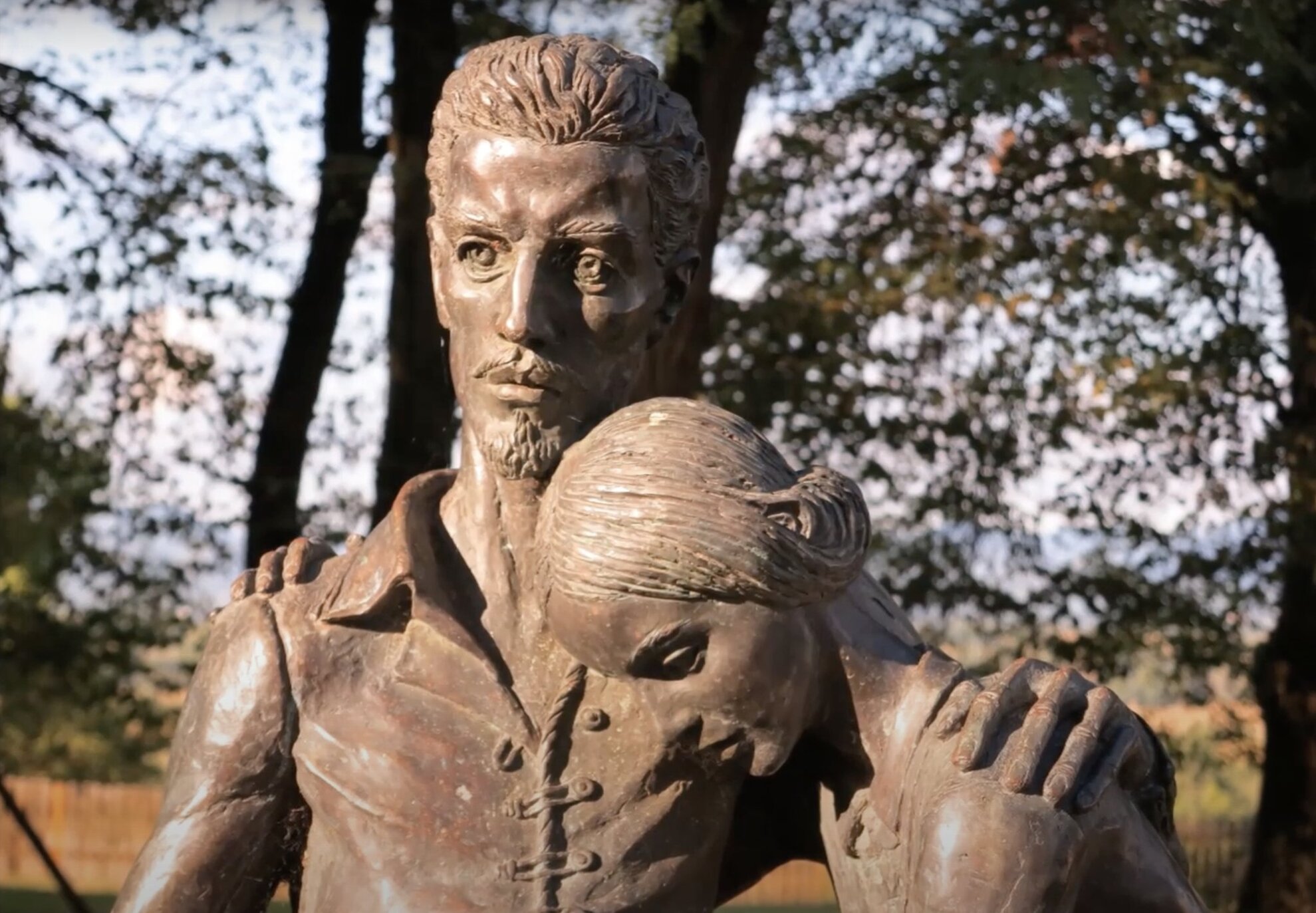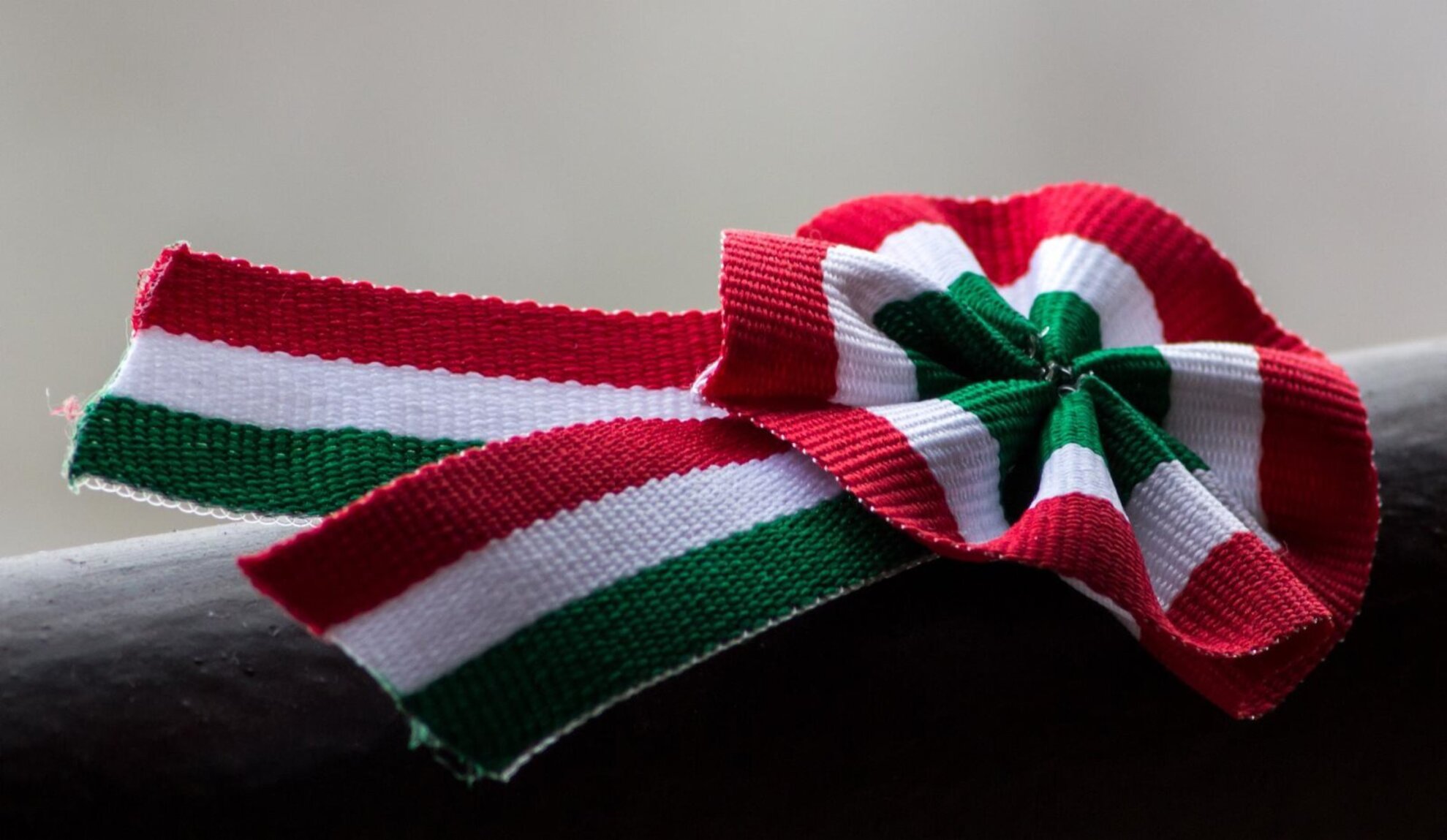Our heroine was born Júlia Szendrey in the rural Hungarian town of Keszthely by Lake Balaton. She received good education in Pest in an institute for wealthy families’ daughters. Very soon she became an enlightened, modern lady, who spoke foreign languages and was fond of literature and poetry, most notably works by Heinrich Heine and George Sand.

The seminal event in her life took place on 8 September in 1846, when she set eyes upon Sándor Petőfi at a county ball in Nagykároly, Transylvania. At that time, he was an important literary figure and celebrated poet and, according to rumour, Júlia fell head over heels for him instantly.
Love at first sight as they say, in their case it seemed to be true according to contemporary sources. That night they were inseparable on the dance floor and after Júlia went back to her parents’ house at Balaton, Petőfi paid her several visits. The poet then had to go to Budapest as duty called, and Júlia stayed at the family home.

Who was Sándor Petőfi?
This legendary Hungarian poet and revolutionary, Petőfi was the author of Nemzeti Dal ('National Song') which inspired the young men of Pest to instigate the Revolution of 1848 that turned into a war of independence from the Austrian Empire. He went missing in action at the Battle of Segesvár in Transylvania, where he was thought to have died at the age of 26. His poetry forms part of the Hungarian literary canon and his figure is forever interwoven with the notion of Hungarian independence.
Whirlwind-like as it was, the love affair was by no means an overnight sensation. Júlia’s parents frowned upon her romance with the poet, thinking that he would ruin their daughter’s future. At this time, young people could only marry if their parents gave them permission. Júlia’s father, the well-respected Ignác Szendrey, duly put his foot down.
But no matter the obstacles, the two lovebirds were married in 1847 despite parental disapproval, exactly one year after they had first met. They spent their honeymoon at Koltó Castle in Transylvania, where Petőfi wrote one of the most beautiful love poems to his new bride, End of September:
… who will love you forever,
Will love you alone, even then, even there.

The newlyweds then settled in Pest, as Petőfi was tied to his literary career. They lived in today’s busy Dohány utca, where they shared the house with another celebrated writer of the time, Mór Jókai. He became the editor of a prestigious literary journal, Életképek, which gave Júlia the chance to have her own pieces published. She soon became a successful writer in her own right.
They lived in close contact with each other, socialising infrequently. The three of them would usually read their writings to one another and had tea together every day. They had food delivered from a nearby restaurant as Júlia didn’t want to waste her time with household duties.

This extravagant woman didn’t conform to the contemporary rules of a housewife. She lived her life as a man of the time. Sources correspond that Júlia usually wore trousers instead of dresses, she had short hair, which was considered to be unusual at that time, and every so often she smoked cigars with men. Her literary contribution is also quite impressive.
She occasionally wrote stories and poems and, as she spoke languages, she was the one who translated the tales of Hans Christian Andersen into Hungarian. Between writing and reading, she soon conceived their first child with Petőfi, and Júlia’s life was filled with untold joy.

Their fairy tale was interrupted when the Revolution of 1848 broke out on 15 March. Their son was born that year on 15 December. Júlia and Sándor saw each other for the last time on 20 July 1949 and then exchanged two more letters before a devastating turn of events. Her loving husband became a soldier and although, she followed him everywhere, but couldn’t be there at the fateful Battle of Segesvár, where Sándor Petőfi disappeared and most probably died.
Júlia then left everything behind and desperately tried to find the poet – but to no avail. General Joseph Haynau, who led Austria’s blood-filled revenge against the revolutionaries, denied her passport request so Júlia couldn’t travel abroad to find her beloved husband.

As she later wrote to her father on her deathbed:
“Father said I would be unhappy with Sándor. A woman has not yet experienced such happiness that I felt when I was together with my Sándor. I was his queen, he adored me and I adored him. We were the happiest couple in the world, and had fate not intervened, we would still be so".

Afterwards, she had to seek protection and her friend, senior historian Árpád Horvát, was on hand. It became a national scandal when Petőfi’s widow married him ten days before the mourning period was officially over. But Júlia lost more than the general public first thought.

Although Horvát first gave her security and she bore him four children, the marriage was not a happy one. Her second husband forced her into conjugal duty against her will, even after she was diagnosed with cervical cancer. In 1867, she moved away from her him and died alone in her small Pest apartment in 1868.
In her last letter to her father, she revealed all the wrongdoings of her second husband, who then didn’t allow him to bury Júlia. He himself had her placed in the Petőfi family vault, fulfilling his daughter’s last wish by carving 'Mrs Sándor Petőfi' on the gravestone. Her first-born son, Zoltán, accompanied her body to its resting place while her children from her second marriage were forbidden to attend by their father.

Petőfi’s Júlia was the perfect example of a modern, emancipated young woman. She was intelligent, well-read and most certainly an extravagant figure at the time. She was the perfect companion for Sándor Petőfi and she supported him throughout. Had it not been for Júlia, Petőfi would not have written some of the most beautiful love poems in Hungarian literature.




